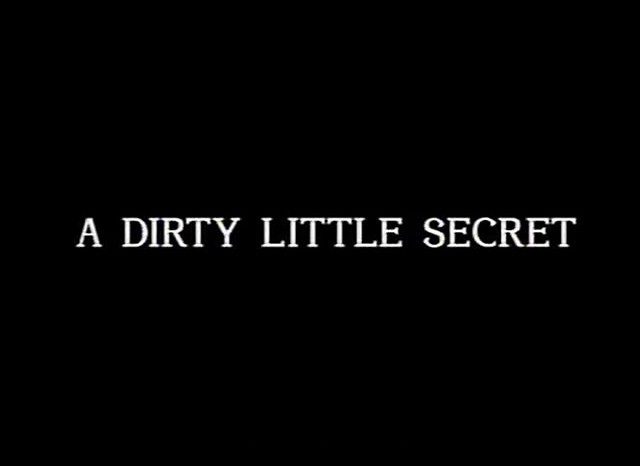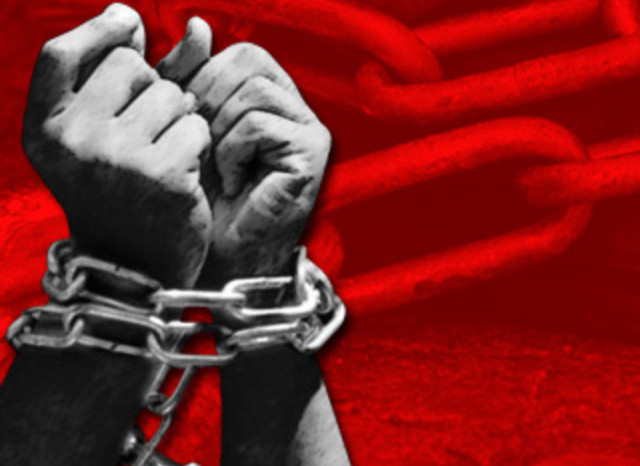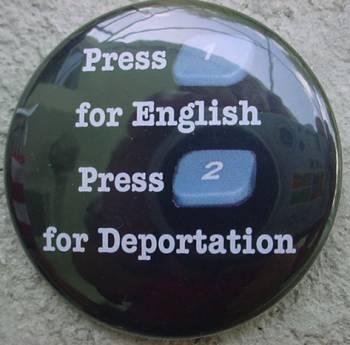A Dirty Little Judicial Secret
USURPATION OF JUDICIAL POWER:
A practice has grown among the judiciary to reserve, exclusively, to a trial judge, the power of judging the law. This is not to say that judges, per se, refuse all knowledge of the Jury’s right to judge the law. Many courts have recognized this right. However, what the judicial branch, per se, does, is refuse to tell a jury of their rights, while at the same time not allowing an attorney to do so either (Sparf & Hansen v. U.S. 1895, 156 U.S. 102).
There are two primary reasons judges insist on being the only definer of the law. 1) Because they believe common jurors are just that – regular people that are not sophisticated enough to understand the law unless a judge explains it to them; 2) Judges do not want to surrender their self-granted power to attorneys.
Judges, officiate in criminal jury trials for the primary purpose of ensuring a fair trial. They are referees or umpires whose duties lie in making sure the playing field is level – not to pass judgement. Judgements are reserved to the jury. Juries decide facts, and when appropriate, judge the law as well.
When a jury judges the law it has been commonly called Jury Nullification. It could be better labeled, Jury Prerogative, a recognition of the juror’s right (duty) to judge the law as well as the facts of a case. Judging the law means comparing a law in question against an accepted standard. In America, the only standard to which a law can be assessed is a constitution, either state or federal.
Jurors do not have the license to judge a law to their personal standard or opinions. To allow one to whimsically decide whether a law is good or bad based upon a personal view would be inviting judicial lawlessness.
Jury Prerogative (nullification) is the right and power of a jury to decide the facts of a case and determine the validity of a law by judging the subject law against a state or the federal constitution.
HISTORICAL BACKGROUND:
The 6th Amendment to the U.S. constitution states, “In all criminal prosecutions, the accused shall enjoy the right to a speedy and public trial, by an impartial jury….” It doesn’t say by a judge; it specifies an IMPARTIAL jury. A government employee, using his or her powerful position to ‘charge’ or ‘instruct’ a jury, is violating the 6th, 9th and 10th Amendments of the U.S. Constitution. A jury that has been subjected to this usurpation of power is no longer impartial – it has been influenced to the judge’s uncontested bias.
Our Constitution, our rule-of-law, was written by laymen for laymen. No where in its articles or amendments is the judicial branch empowered to TELL a jury anything, much less how to apply a law. Some states, in open confrontation to the Constitution, have even gone so far as to require jurors to report fellow jurors who refuse to follow the law as directed by a judge!
Our fore fathers realized that judges, being human, carry their own prejudices. Because of this, the framers of our Constitution did not require judges, during a jury trial, to swear to tell the whole truth and nothing but the truth. In all criminal proceedings witnesses who are going to testify before a jury must swear, under penalty of perjury, to tell the truth. This rule applies to everyone including lawyers, police officers and other government employees even though they have sworn an oath to their office and the Constitution. The judge is immune to this rule of law because he is not expected to testify. Unfortunately, a practice has evolved where judges do testify in the form of their ‘instructions’ or ‘charges’ to the jury. It is during this ‘testimony’ – this propagation of their own power – that the judge will NOT tell the whole truth. The whole truth being a jury’s right and power to decide the constitutionality of a law.
Many precedent setting rulings, dating from the decade of this country’s inception to as late as 1972, have confirmed that Jury Prerogative is a bono fide right and power of a jury.
COMPARATIVE EXAMPLE:
Just for the sake of argument, let’s say that Public Law X makes it a crime to speak or write anything derogatory about any federal employee. Soon thereafter, your car is struck by a vehicle negligently operated by a FBI agent. In the heat of the moment and outraged that this bozo had damaged your new BMW, you call the agent an incompetent jerk whereas you are immediately arrested for violation of Public Law X.
You’re an honest person and do not deny that you made those comments. You place your faith in the fact that Public Law X is obviously in direct violation of the 1st Amendment to the U. S. Constitution. However, and for whatever reason the judge in your trial denies your attorney’s motions for summary judgement, i.e., that Public Law X is unconstitutional. At the conclusion of the trial the judge ‘instructs’ the jury that if they find that you did utter derogatory comments to a federal employee they, the jury, MUST find you guilty as charged. Of course, the jury has the right and power to determine that Public Law X is in violation of the First Amendment. However, if the judge refuses to tell the jury that they have this right and your attorney is not allowed (ibid, Sparf & Hansen) then that leaves you in a shooting war – and without a gun.
JURY PREROGATIVE – WHAT IT IS/IS NOT
Circa 1988, a group of citizens formed a grassroots organization, The Fully Informed Jury Association (www.fija.org). Their intention was to inform jurors of their right to judge laws. However the FIJA misinterpreted the meaning and definition of Jury Nullification/Prerogative and have skewered, twisted and misapplied this 200 year old concept. They promote the notion that juries have the right to decide if a law is good or bad as judged against their own (individual juror’s own) standards of good and bad. (http://fija.org/)
In a recent case, the California Supreme Court (People v. Williams, S066106, 2001), found that a juror who told a trial judge, “I simply cannot see staining a man, a young man, for the rest of his life for what I believe to be the wrong reason.” This juror raised no issue of constitutionality – he was applying the law to his own personal standards. The juror was replaced by an alternate in what has been called a “Jury Nullification” case. It was not. There was no issue of constitutionality at bar.
The California Supreme Court correctly upheld the dismissal of the juror for applying his own standard to what the law meant. To evoke Jury Prerogative, a juror must believe the law under which a defendant is charged is unconstitutional. For example: if a defendant is charged with violation a law “A” and a juror votes for acquittal because this juror believes that law “A” is unfair, defective, unjust, not a good law or the law is stupid, the juror is not doing his duty. However, if the juror is convinced that law “A” is in violation of a state or a federal constitutional guarantee, then the juror is obligated to vote not-guilty.
Jury Prerogative (nullification) is the right and power of a jury to decide the facts of a case and determine the validity of a law by judging the subject law against a state or the federal constitution.
POSSIBLE REMEDIES:
- Demand a full legal representation. Forcing a defendant to become his own lawyer just for the sake of arguing the law’s constitutionality is a clear violation of the 6th Amendment right to counsel. In other words, it is well established in case law, that the accused is entitled to representation at ALL levels of trial including even pre-trial interrogation and post-trial sentencing. Therefore, how can the courts continue to support Sparf (ibid) which clearly forbids representation at a most critical stage of a trial – the “instructions/charge” to the jury? This quirk of forbidding attorneys to argue the law before the jury, but permit pro se testimony seems to have escaped the logic of the judicial system. By this same reasoning, if the courts are permitted to bar an attorney from presenting evidence, testimony and/or summation concerning the constitutionality of a law, then what is to prevent the court from forbidding an attorney from arguing the credibility of a witness or any other issue before the jury? No doubt the trial judge will deny your request thus allowing you to appeal to a higher court where this matter should be settled.
- Join the JUDICIAL ACCOUNTABILITY INITIATIVE LAW organization. J.A.I.L. is working to enact Special Grand Juries to sanction judges by levying fines, forfeitures and possible removal from the bench against judges who usurp their powers. (www.jail4judges.org).
- Consider filing suit against your local Jury Commissioner to require the Jury Prerogative option be disseminated to prospective jurors.
- If you are charged with a crime and you can show the law under which you are charged is in violation of your state’s or the Federal Constitution, demand a jury trial and mount a challenge to Sparf & Hansen v. U.S.
- If you are not successful with your challenge to Sparf & Hansen at the trial level, have Plan ‘B’ ready: Consider acting as co-counsel. Because the judge will not advise your jury of their right to judge the law and also refuses your attorney that power, your only option might be to tender the summation yourself.
Acting pro se, you can say almost anything to a jury as acknowledged by the 1972 case, U.S. vs Dougherty (473 F.2d, pg 1137): “Thus, a defendant’s ability to present his demeanor and often even a kind of testimony, without exposure to impeachment or cross-examination, may be a tactical consequence of pro-se representation, and even a moving cause of its invocation….”
Sidebar: “The law itself is on trial quite as much as the cause which is to be decided.” Harlan F. Stone, Chief Justice U. S. Supreme Court (1941). “The pages of history shine on instances of the jury’s exercise of its prerogative to disregard instructions of the judge….” (U.S. vs. Dougherty, 473 F.2d 1139 [1972]). “The jury has a right to judge both the law as well as the fact in controversy.” John Jay, 1st Chief Justice U.S. Supreme Court (1789).
The jury does and always has had, in the words of Justice Holmes, “the power to bring in a verdict in the teeth of both law and facts” (Horning v. District of Columbia, 254 U.S. 135, 138, 41 S.Ct. 53,54,65 L.Ed. 185 [1920]).
© 2014 Chuck Klein www.chuckklein.com
EDITORS NOTE: The featured image is a screenshot of “A dirty little secret” from Frasier episode, “The Show Where Sam Shows Up” in 1995 courtesy of Paramount Television and Grub Street Productions.



